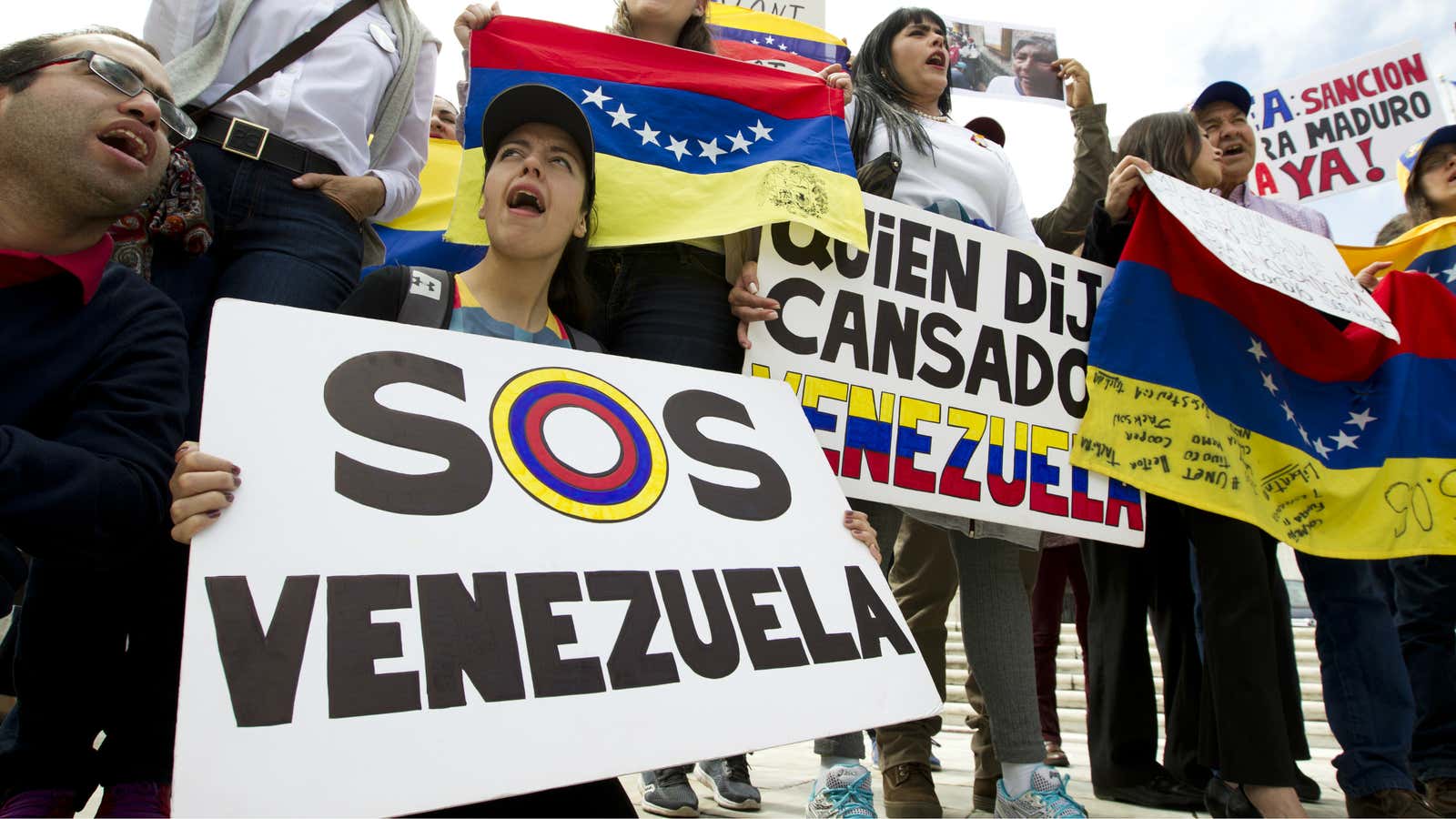People have taken to the streets in Caracas, incensed over the government’s failure to import—as promised—the pork that would traditionally be served as part of Christmas dinner.
Protestors banged pots and burned trash in the streets to show their displeasure, putting pressure on Venezuelan president Nicolás Maduro, who has grappled with a collapsing currency and an economy hobbled by inflation. Earlier this month Maduro had promised to deliver subsidized pork to low-income families. Having now upset even his government’s most ardent supporters, known as “Chavistas,” Maduro blamed the shortage on Portugal, the origin of its latest pork shipments, according to CNN.
“They sabotaged us,” the president said in a televised address this week.
The scapegoating is an expected move from Maduro, who tightened his grip on power as Venezuela’s economy slid further into oblivion. The explanation was also challenged by Portugal, whose foreign minister, Augusto Santos Silva, said the Portuguese government does not meddle in the affairs of companies operating on the open market.
“There is no room for any kind of political interference,” Silva said.
Meat company Raporal backed Portugal’s defense, saying on Thursday (Dec. 28) that the Venezuelan government had not paid (link in Portuguese) for the meat, and that it still owed about €40 million ($48 million) for 14,000 tons of pork ordered in 2016.
That hasn’t stopped the Venezuelan government from pointing fingers. On Thursday, its food ration distribution minister, Freddy Bernal, tweeted that the US was to blame. He explained that 2,200 tons of pork was being held in Colombia, part of a US threat to freeze accounts of entities who sell food to Venezuela.
Although there’s no ban on exporting food into the South American nation, US-imposed economic sanctions have been blamed for blocking some food. In November, Venezuela defaulted on its bonds after failing to make $200 million in coupon payments on bonds worth $5 billion owed to foreign creditors.
